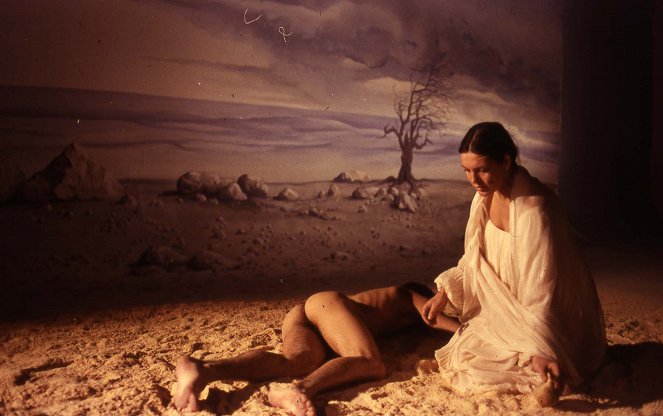Recenziók (3)
The whole fictional documentary (which is not a contradiction) is characterized by a peculiar atmosphere of melancholy; the film speaks of the frustration and helplessness of its creators, who are clearly politically engaged on the left. Helplessness and sadness over the contradiction in which they find themselves: on one hand, the desire to change and further democratize the state and society; on the other hand, the killing of civilians who (randomly) embody the evil of capitalist society, by the burials of the hopeful movement of 1968. Therefore, the film's motto "when horror reaches a certain point, it doesn't matter who perpetrates it. Let it end." represents a painful awakening from the idea that there is an easy path to a better society without the fear of becoming evil in the fight against evil. The creators perceive their struggle against the state and capitalism as inseparable, viewing it as a general irony toward the "democratic" form of the state, which always abides by freely accepted laws, except in situations that threaten the state's existence (which the state itself determines, and perhaps the industrialists from Mercedes...). And it is also specifically German - its traditional deification of the state, stemming from German history from Prussia to Nazism, conceiving the state, as Hegel did, as a moral and rational sphere of the nation's being, is also traced by the authors in post-war society. However, even a viewer unfamiliar with the historical circumstances can take away an inspiring question from the film, ironically formulated by Marx in 1875: "What is a free state?"
()
The work of German director Rainer Werner Fassbinder can be somewhat compared to the works of contemporary American enfant terrible of cinema, Michael Moore. Both are activist and provocative, biased in many ways, but certainly interesting and stimulating. However, there are significant differences in their approach. Whereas Moore is ironic and deliberately uses cutting exaggeration, Fassbinder is deadly serious and combative. This is perhaps why I forgive Moore more, whereas Fassbinder really annoys me in certain moments. Germany in Autumn is a quasi-documentary film where the director confronts the phenomenon of RAF terrorism. For the viewer to understand and even enjoy the film, it is essential to know the history of the RAF, the political climate of Germany in the 1970s, and indeed the whole of modern German history. Last but not least, knowledge of Fassbinder's political views, which of course significantly influenced the final form of the film, is important as well. Ideologically, Fassbinder belonged to the radical critics of the existing German establishment, distrusted the state structures and his characters never shied away from using the term fascism when evaluating contemporary German society and its bourgeois values. Although Fassbinder does not openly support the terrorists, for him they are just another victim of the bourgeois society that pushed them to rebellion. The director criticizes the "police state" much more, considers the action of the German commando that liberated hostages at an African airport to be outrageous, and sees the whole topic as a starting point for further critical attacks against the current German politicians and state institutions. He is also crudely demagogic in some respects, as can be seen, for example, in his comparison between the case of Field Marshal Rommel, whom the Nazis forced to commit suicide in the autumn of 1944 and then held a grand state funeral for, and the case of kidnapped businessman Schleyer, whom the terrorists executed after the German government refused to release the convicted leaders of the RAF and then also held a state funeral for the executed Schleyer. Overall impression: 50%.
()
Sixteen years after Oberhausen, the post-war generation of West German filmmakers composed another manifesto, this time in the form of a film. They expressed their opinions on the events of the so-called “German Autumn” (the name was derived ex post from their film), which began with the abduction of industrialist and former SS high official Hanns Martin-Schleyer and ended with the unexplained deaths of founding members of the Red Army Faction. The filmmakers take a collective approach to voicing their political position, as their individual statements converge into a single flow of information, and only thorough familiarity with the work of those involved will help you to distinguish who had a significant share in which segment. Immediate reflections on the ongoing political events are supplemented with philosophical consideration, with the theme of violence and its legitimacy serving as a frame of reference. With respect to the historical context, the state’s arrogation of the patent on violent activity raises concerns about the abuse of the apparatus of repression against citizens. Therefore, footage from Nazi weekly newsreels is “contextualised” and thus linked to contemporary events. The quote “When horror reaches a certain point, it doesn’t matter who commits it. Just so long as it comes to an end” crops up twice in the film. You will probably perceive it in a different light at the end than you did at the beginning. 75%
()
Galéria (43)
Photo © Filmverlag der Autoren


Hirdetés